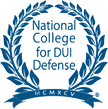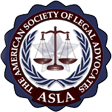The Search and Seizure Laws in Washington
If a law enforcement official arrives at your home and asks to enter, search your vehicle, or search your person and you provide consent, you essentially forfeit your right to challenge the legality of any search or seizure performed. Police officers are not required to inform you of your right to deny a consented search, so they may be very adamant about their desire to search until you consent.
At the same time, however, your consent must be provided on a free and voluntary basis. This means that any coercion may result in an illegal search. An experienced illegal search and seizure attorney can help determine if you have been the victim of such activity, regardless of whether you gave consent to the search or not.
What is Reasonable Expectation of Privacy?
The reasonable expectation of privacy afforded under the Fourth Amendment applies you, and what you may have on your property, in your home, in your vehicle, or on your person. Washington state vehicle search laws are there to protect you from any illegal searches.
What is Probable Cause?
A commonly contested issue revolves around the legitimacy of the probable cause used to obtain a warrant. In order to obtain a search warrant, law enforcement must present evidence before the judge that supports probable cause. Officers do not have permission with a search warrant to enlarge their search beyond the authorizations provided in the warrant.
It is important to note that even searches conducted with a warrant that are later determined by the court to be invalid may, in some instances, still be used as evidence.
What are Exigent Circumstances?
There are certain situations, referred to as exigent circumstances, that courts have recognized that allow law enforcement officials to enter or infringe upon private property or personal privacy without a warrant.
In these cases, the state of Washington must prove that no other less invasive means were available in order to prevent the loss or destruction of evidence. However, if you have been the subject of a search claimed on these circumstances, your illegal search and seizure attorney may have a strong basis to claim the search was unlawful.
The Plain Sight Doctrine
Under the plain sight doctrine, police have the authority to search areas that are plainly visible. They may also seize items and evidence from these areas of plain view. For instance, an officer with a warrant authorizing the search of a locked safe in a home who sees illegal drugs on the way to the safe may seize those illegal drugs.
Illegally Obtained Evidence
If a court discovers that an unreasonable search has taken place, all evidence seized as part of that search is not permissible for use as evidence against you. This principle is referred to as the exclusionary rule, first recognized by the U.S. Supreme Court in 1961.
Beyond the initial evidence obtained from an illegal search, any additional evidence derived from the preliminary findings is generally inadmissible in a court of law. This explains the doctrine referred to as the “fruit of the poisonous tree.” The police initially seized evidence illegally; that is the tree. Additional evidence is then produced as a byproduct of the earlier results of the search; this is referred to as the fruit.
With the help of an illegal search and seizure attorney, you can motion to suppress the outcomes of any illegal search and seizure. To retain this evidence, the government must prove that the search was conducted on the basis of a legitimately-obtained warrant or was permissible due to an exception.
Talk to Our Seattle Search and Seizure Defense Attorneys
Questions about search and seizure laws in Washington? Do you believe your privacy and rights were violated? We can help.
At Emerald City Law Group, our Seattle criminal defense attorneys will work vigorously to expose the illegal nature of the search and seizure conducted by law enforcement and fight to have such evidence excluded from your case.
To arrange a free and confidential consultation, call our law office today at 206-973-0407, or fill out our contact form.






